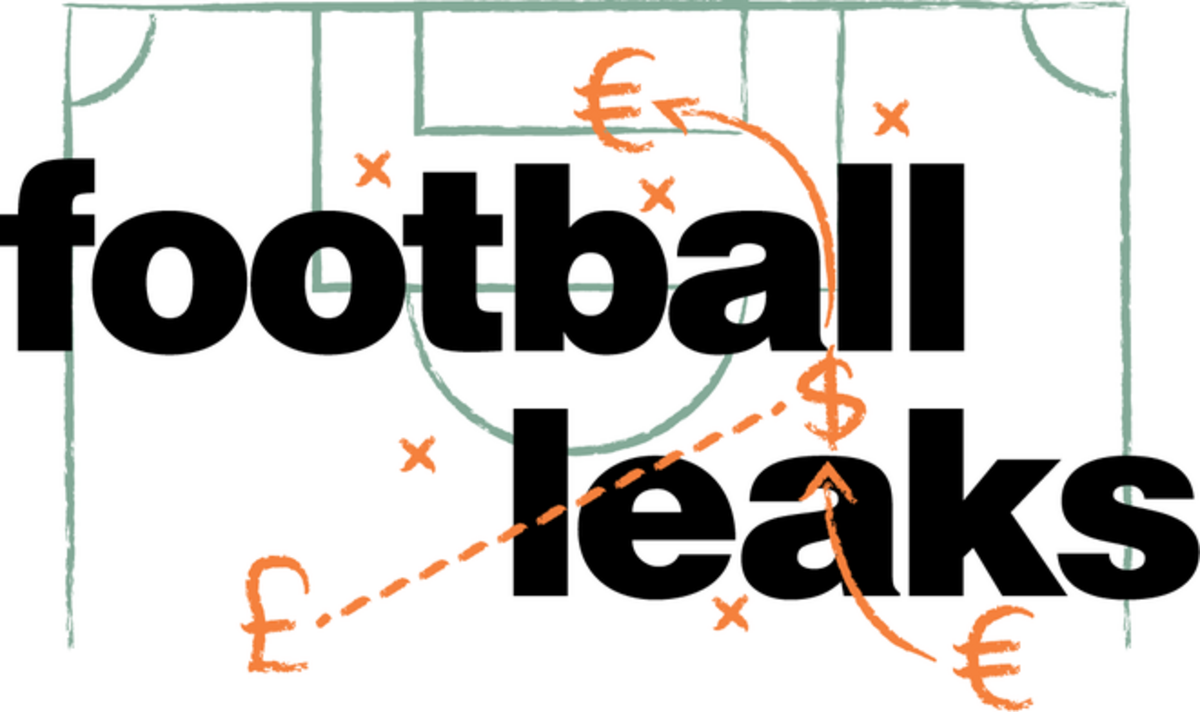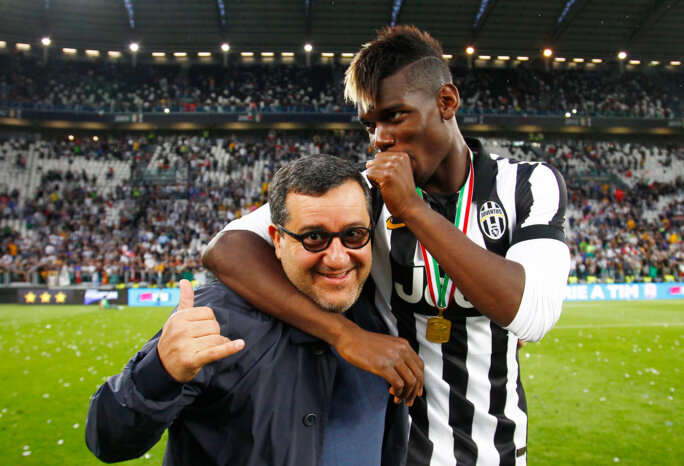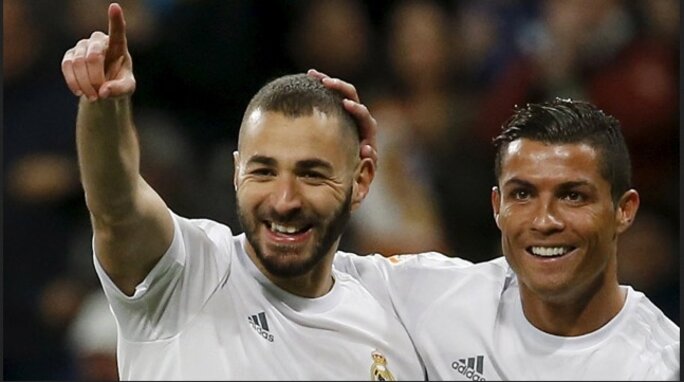On December 2nd, Mediapart and its 11 partner news organisations in the journalistic consortium European Investigative Collaborations (EIC) began publishing what would become an almost month-long series of revelations that have rocked the world of football, exposing corruption, tax evasion, money-laundering and more.
The revelations followed the EIC’s access to a wealth of documents from the whistle-blowing platform Football Leaks, amounting to the largest leak of data in the history of football. While it remains uncertain whether this catalogue of exposures of the dark side of the game will result in a proper clean-up, it nevertheless prompted the opening, on December 12th, of a preliminary investigation by the financial crime department of the French public prosecutor’s office into “moneylaundering of the proceeds of aggravated tax evasion”.

Enlargement : Illustration 1

During the first revelations this month, Mediapart and its partners detailed how Portuguese star player Cristiano Ronaldo had placed just less than150 million euros of earnings into tax havens (see here). Among the reactions to the disclosure, some suggested he may have done so unknowingly, while others questioned why he was hounded. But Mediapart and its partners in the EIC never took a decision to go out and target in particular Ronaldo, the world’s wealthiest and best-known player, and also the most talented, according to France Football’s jury who awarded him the Ballon d’Or title just days after the EIC revelations.
An estimated 80 billion euros is hidden from the French tax authorities every year through deliberate tax evasion. That fact has been reported many times, and often provokes little more public emotion than a shrug of the shoulders. But when, in 2013, French budget minister Jérôme Cahuzac was revealed by Mediapart to have held over two decades a secret bank account abroad, there followed a wide public debate, a parliamentary enquiry, new measures of control of probity in public office and finally his sentence to three years in prison, a ruling which, by coincidence, was announced during the publication of the Football Leaks revelations.

Enlargement : Illustration 2

The same rules apply to all, including those in football. The case of Ronaldo, like that of French midfielder Paul Pogba and others revealed by the EIC, demonstrate that in the world of football, tax evasion has become systemic and frequent.
Every weekend, millions of fans enthusiastically follow the on-pitch exploits of the stars of football, the most popular sport of any, while they appear before us in adverts of all sorts, and generally provide a rare positive element in what has lately become a largely depressing news agenda. But football now also provides a big-screen explanation of the huge issues at stake with tax evasion. In a small but pertinent anecdote, the six-year-old nephew of a member of our editorial team asked his father, after listening to radio reports of the Football Leaks revelations, why his favourite player did not want to be part of the general process of public funding, like building schools and motorways.
What might appear a naïve question nevertheless demonstrates the public interest of our revelations, whatever the objections of those implicated in the disclosures. Days after publication of the first Football Leaks disclosures, lawyers acting on behalf of Spanish club Real Madrid, its players and its massive financial interests, succeeded in convincing a Spanish magistrate to request Europe-wide judicial cooperation to impose a gagging order on all of the EIC members. The EIC naturally refused to comply with any attempt at censorship.
Footballers themselves are often naïve, uprooted and distanced from their families in their early teens, taken under the wings of agents of whom some are more interested in their own future than that of their young charges. It might just be that after the EIC’s revelations, a promising young player might question the contracts he is given to sign.

Enlargement : Illustration 3

There are of course footballers such as Real Madrid’s French striker Karim Benzema, who, as the EIC reported, pays taxes on his image rights in France, forgoing his legal right to a more lenient taxation in Spain. But there are many others who, less talented and less wealthy than Ronaldo, follow the same strategy towards taxation as the Portuguese. Should Ronaldo have been made an example of and deprived of the Ballon D’or award? If so, the runner up, Lionel Messi, would have also had to be removed from the list of candidates following his conviction in Spain earlier this summer for tax fraud. It is a similar situation to the doping scandals on the Tour de France cycle race; when those found guilty of doping are removed of their titles it becomes difficult to know where – or rather, with who – to stop, or even whether the new title winner will not one day be exposed in turn.
It should not be forgotten that the Football Leaks documents shine a light on but a small part of the opaque activities of the football business. The EIC’s source, who, to protect his identity, goes by the name of “John”, said his motivation was to help “clean up football”, a sport blighted by what he called “an extremely corrupt system”. He passed on 18 million documents in data files, but it should be remembered that these concern only some of the networks and financial structures that operate within the system he denounces.
The documents obtained by the EIC include many concerning the business of ‘super agent’ Jorge Mendes, who manages seven players who, reveal the documents, altogether hid away from the tax authorities 188 million euros. There is also the clan of Argentine football agents who do business together under the umbrella of an Argentine company, moving money from transfer deals and image rights sales to countries where taxes are virtually non-existent.
Among the footballers exposed by the Football Leaks documents is Paris Saint-Germain star Angel Di Maria. During an image rights deal for which the player would be handsomely paid, his agent, as we revealed, wrote an email to the company hiring him making clear that Di Maria did not want to be seen to be associated with a tax haven. But he would be paid in one via his front company. Which illustrates that football players are not all as naive as some would like to pretend. During a press conference one week after the first Football Leaks revelations, Real Madrid coach Zinedine Zidane was questioned about the disclosures of tax evasion among some of his team members. “Players are intelligent people, they know perfectly well what they do or what they’ve done,” he said.
But football agents and other player advisors have shown no lack of imagination in setting up elaborate tax-dodging schemes which place their clients at considerable risk. Beyond legal and ethical considerations, how can one justify setting up an offshore structure for Ronaldo to receive payments for the use of his image when the Spanish tax system offered the player a highly advantageous tax rate of 5% on his image rights earnings between 2009 and 2014? On top of which, just a few hours work on an advert would have sufficed to pay the five years of taxes which the player would have paid (so much for fiscal policies which apply low tax rates on the wealthy in order to discourage tax evasion).
Eric Cantona wants to coach a British Virgin Island team
Everything is done so that clubs and companies involved in image rights deals with players are not seen to be paying money directly into exotic tax havens. To that end, shell companies are created in Europe, notably Ireland, the Netherlands, and Malta, before being transferred across the world. According to professionals from the world of football who took part in a video debate held at Mediapart earlier this month on the Football Leaks revelations, the hypocrisy is widespread. Most in the business know what goes on, and nobody is troubled by the practice. Which occasionally leads some to drop their guard, as illustrated when sportswear company Adidas made image rights payments to Argentine midfielder Lucho González, when he was playing for Marseille, directly into an account in Panama.
Portuguese club FC Porto was often cited in our reports published through December. Porto is a major European club. It won the European Cup in 1987 and the Champions League in 2004, and came top of the Portuguese top-flight division 15 times. Jorge Nuno Pinto da Costa has been president of the club since 1982, and the EIC discovered through the Football Leaks documents that his son, who works as an agent, received commission payments on some player transfer deals at the club. It also discovered that Porto signed up under-age players from Africa and paid agents to act for them, contrary to Fifa regulations, and that it continues to do business with Luciano D’Onofrio, who was convicted for his role in a series of corruption cases and finally banned from exercising as an agent.
Porto has also paid secret commissions during transfer deals, and has withheld the true sums involved in transfers to help agents it favours. Moreover, the club continues to hold economic Third-Party Ownership (TPO) stakes in players, a practice outlawed in 2015.
Will Porto be able to weather out the Football Leaks storm of revelations? The official reactions to the disclosures have until now been notably timid. In an interview with the EIC, Fifa president Gianni Infantino gave no pledge to introduce reforms, or to take sanctions against wrongdoers. The only proposition from him was the setting up, next year, of a committee to reflect on current procedures regarding issues highlighted in the Football Leaks documents, such as the secret business behind transfer deals. His reaction served to underline the inadequacies and resulting powerlessness of Fifa.
There was a time when Fifa did take action against the murky side of the football business, when it introduced a ban, in May 2015, of the system of Third-Party Ownership (TPO). TPO allowed individuals or companies to purchase a stake in a player’s economic rights, which gave the investor a proportionate share in the player’s future transfer fees. A system that first began in South America, it brought considerable profits to investment funds and influential agents, and led to significant – and often hidden – conflicts of interest, as in the case of French club AS Monaco.
But despite the Fifa ban, the practice is continued by some and is circumvented by others. Agents have even bought up clubs to continue with the speculation.
Doyen Sports, one of the biggest investment funds in European football, was particularly active in TPO deals, influencing transfer deals under the cover of financing clubs. It made huge profits on player transfers, such as in the case of French midfielder Geoffrey Kondogbia and French defender Eliaquim Mangala, through whom it received a 10-million-euro profit, four times its original investment. There can be few fields of investment which offer such lucrative returns.
The EIC discovered that at least 10.8 million euros in commissions for transfer deals were paid by Doyen Sports into tax havens, although the identities of those for who the sums were destined was not found. At times Doyen Sports employed colourful methods, such as in its attempt in 2013 to convince Real Madrid to buy Geoffrey Kondogbia. In an exchange of mobile phone text messages revealed by the EIC, Doyen Sports’ directors discussed plans to offer the Spanish club’s president, Florentino Perez, a bunga-bunga style party in Miami. Perez, questioned by the EIC, strenuously denied ever taking part in the event.
Tevfik Arif, one of the four brothers of Kazakh origin who, through their Doyen Group, own Doyen Sports, was himself implicated in a Turkish police investigation into a sex party on the country’s presidential yacht in 2010. He was charged with organizing the presence of prostitutes on the boat, which was carrying officials and businessmen on a Mediterranean cruise. He denied any involvement, and the case against him was eventually dropped in 2011.

Enlargement : Illustration 4

The Arif brothers employ the same methods in sport as they apply to the rest of their businesses, and notably moneylaundering in the tax haven of the British Virgin Islands. Their vast wealth is founded on their ownership of a chemicals plant in Kazakhstan, which they acquired in the middle of the 1990s, and which is the source of the 75 million euros they later ploughed into Doyen Sports. They enjoy close relations with Turkish president Recep Erdogan, and for several years Tevfik Arif was a property development partner of US president-elect Donald Trump.
Trump licensed the use of his name for building projects in which Tevfik Arif’s company, Bayrock, was a developer. Millions of dollars from the Arif’s chemical plant circulated via the property development business in the US. Trump has claimed to remember little about his association with Tevfik Arif, who was notably his partner in the construction of the Trump SoHo building in New York.
The “beautiful game” attracts ever increasing amounts of money in Europe, and the EIC has revealed how football has even become a field for financial products like any other. The EIC’s exposure of the gold rush and its excesses has prompted some, despite the inertia of football authorities, to call for a clean-up. European Commissioner for economic and financial affairs, Pierre Moscovici, said he was “very shocked” by the revelations, and that the European Commission “has decided to make legislative proposals in 2017 on the role of intermediaries and tax advisors when they organise tax avoidance and fraud". In Spain, Pablo Iglesias, leader of the Podemos party, said he would demand that the government present measures to tackle tax fraud in football activities. Meanwhile, in France, sports minister Thierry Braillard, reacting to the early disclosures of the Football Leaks documents, commented: “What these investigations have revealed is that money makes people mad, and that it is a good [idea] to at some point blow the whistle for the end of the game and to reintroduce a lot of ethics and a lot of transparency.”
But beyond the few worthy statements, what concrete measures will be taken remains to be seen, and it is uncertain that the investigations announced by the Spanish and Portuguese tax authorities will be sufficient to bring the opaque dealings fully to light. In Spain, while the tax authorities have sufficient evidence to request an investigation by the public prosecutor’s office, no such move has been made, and Portuguese ‘super agent’ Jorge Mendes, deeply implicated in the Football Leaks disclosures, has so far not been troubled.
There is also the question of why the relevant British and Italian authorities have not announced investigations into the revelations concerning the financial affairs of Paul Pogba, now resident in Britain and formerly resident in Italy. Similarly, the Portuguese football authorities have so far not moved to clean-up the fraudulent activities of some of the country’s clubs.
While European football’s governing body UEFA has avoided the issues raised throughout December, no-one in authority has proposed creating a new agency which might monitor all contracts, including those of image rights, with the brief of punishing those who contravene the law and the sport’s regulations.
If nobody shows the red card, the game will continue. Meanwhile, the British Virgin Islands could soon become home to the most talented national football side, and Eric Cantona has already made it known – following the Football Leaks revelations – that he is candidate to become its manager (see his tongue-in-cheek video, in English, here).
-------------------------
- This article in English is based on Mediapart's original report in French, which can be found here.


